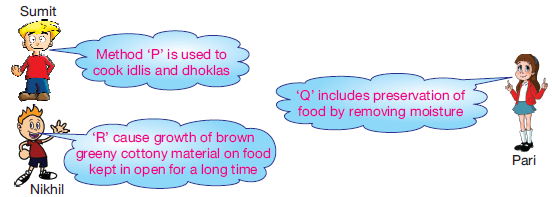Subject :NSO Class : Class 7
Subject :NSO Class : Class 7
Post Your Answer
Subject :NSO Class : Class 6
Post Your Answer
Subject :NSO Class : Class 4
Post Your Answer
Subject :NSO Class : Class 7
Post Your Answer
Subject :NSO Class : Class 3
Ans 6:
Class : Class 9
Animals that gnaw have very sharp front teeth and bite repeatedly and chew it hard so, the correct answer is option (D).
Post Your Answer
Subject :NSO Class : Class 5
Post Your Answer
Subject :NSO Class : Class 7
Ans 6:
Class : Class 7
A: Because of the high salinity of the water, plants will die.B: Plants will have more CO2 and hence have a higher rate of photosynthesis.C: O2 and CO2 will stop dissolving in water, hence killing the plants.So best option is B.
Ans 8:
Class : Class 10
it should be not be c as oil can block the gas exchange for plants and can effect the plant
Post Your Answer
Subject :NSO Class : Class 4


 , find ∠BCd
, find ∠BCd